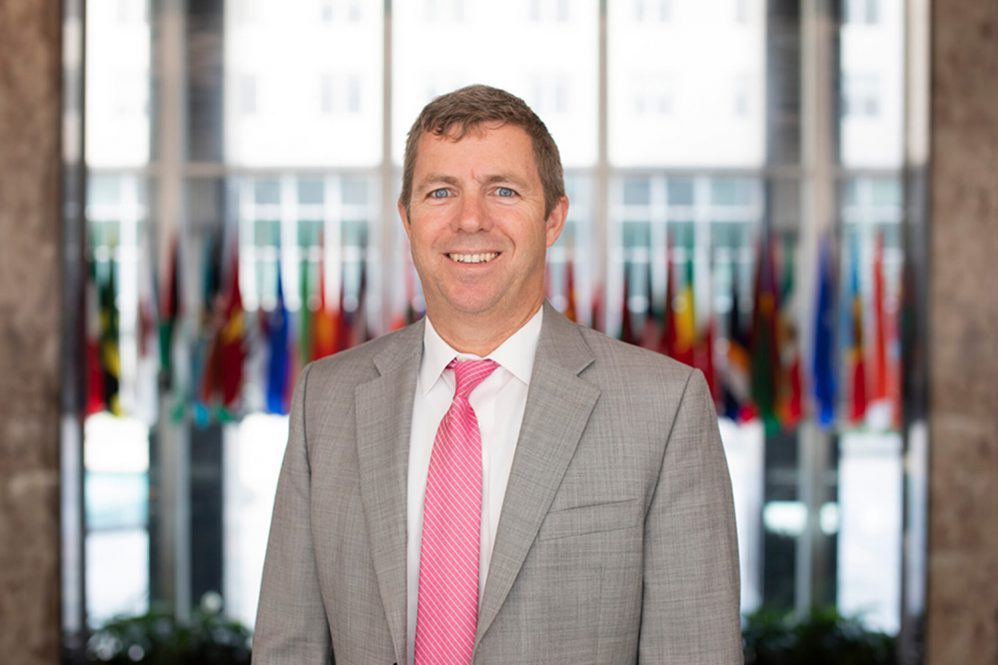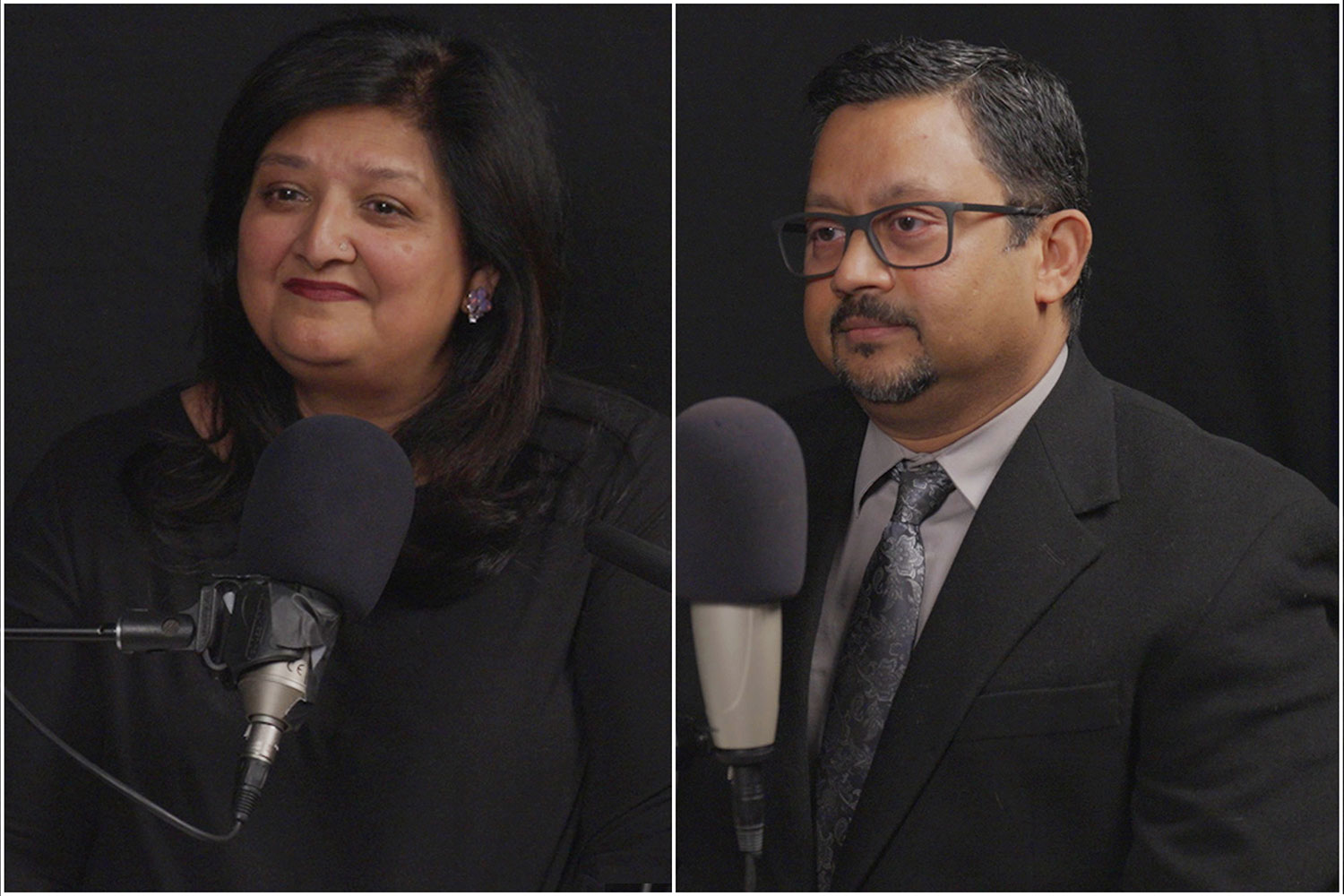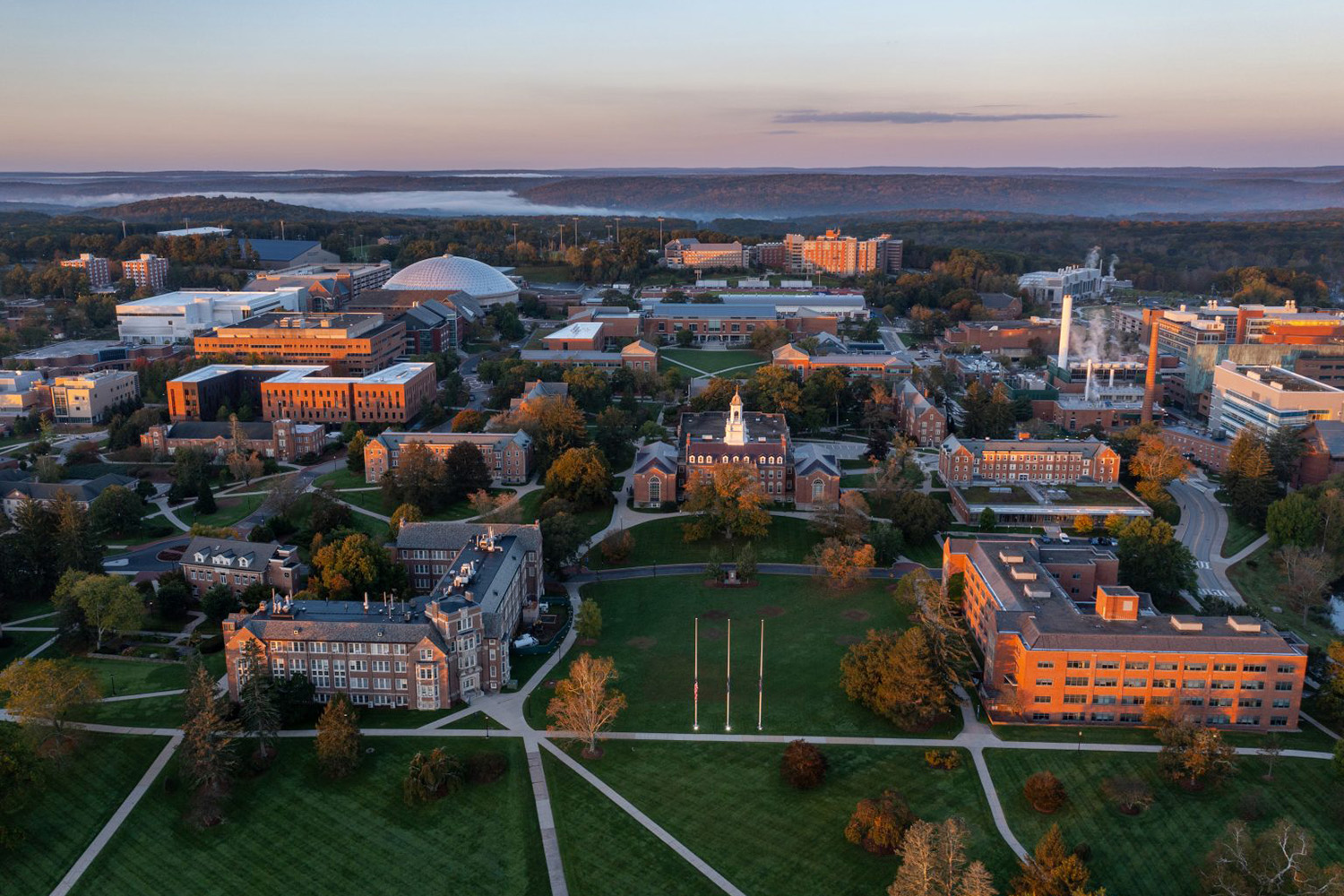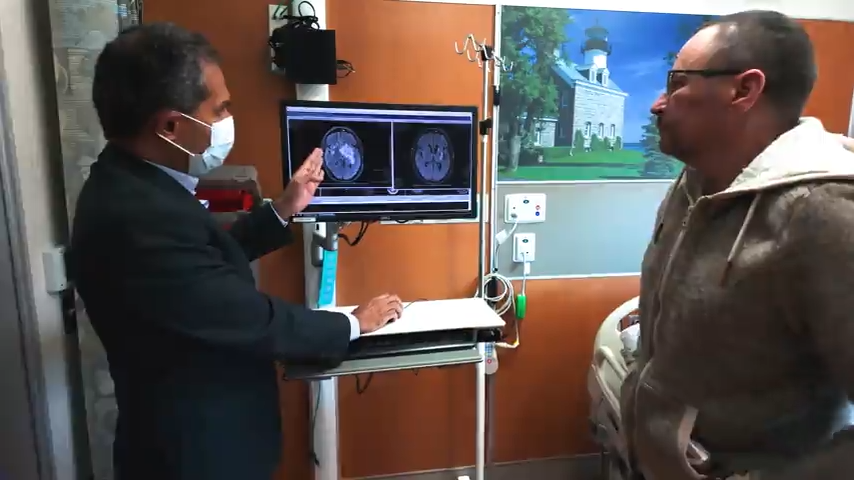Matt McMahon’s office walls prominently feature a Team USA pennant, a baseball card of Masanori Murakami (Major League Baseball’s first Asian player), and the front page of the Boston Globe after the Red Sox won the 2018 World Series. Appropriate decor, for a man who helps run the State Department’s Sports Diplomacy Division.
As the department’s deputy director in its Office of Citizen Exchanges, McMahon ’89 (CLAS), ’94 MA facilitates international meetings, events, and mentorship programs between Americans and foreigners in five primary areas: sports, culture, technology, youth programs, and global leadership.
“I’ve burned through four or five diplomatic passports over the years,” he laughs, listing nations he’s visited including Australia, China, and Egypt.
Go Huskies
The Vernon, Connecticut, native keeps up with his Watson Hall roommates to this day. During the Huskies’ men’s basketball national championship game in April, “we had a text message chain going during commercial breaks.”
Sports has been a throughline of their friendship across the decades. “We used to go out on the quad and play tackle football during the first snowfall of the school year.” In 2017, they reunited for the UConn-Boston College football game at Fenway.
A political science major, McMahon says it was study abroad in Granada, Spain, his junior year that spurred his desire to work in international education and exchanges professionally.
After graduation, he spent a few years working for non-governmental organizations focused on international education and exchanges, which is where he met his wife. Although she graduated from William & Mary, McMahon brags that he converted her to UConn sports fandom.
After returning to Storrs for a master’s in international affairs, McMahon moved to Washington, D.C., for a job at the Asia Foundation and eventually landed at the State Department … the month after 9/11. “It was just surreal, but you definitely had a sense of purpose,” he says of that tension-filled autumn. “It was very meaningful. And [Secretary of State] Colin Powell was a great leader for that time.” He had a knack for making every employee feel needed, McMahon says. “I recall him talking about the custodian who looks beyond the menial tasks of a job description to see how their work can create the environment and conditions for others in the organization to succeed. At a time when I was just starting out at the State Department, he made me feel that even I had an important role to play in accomplishing U.S. foreign policy goals, and it’s stuck with me ever since.”



